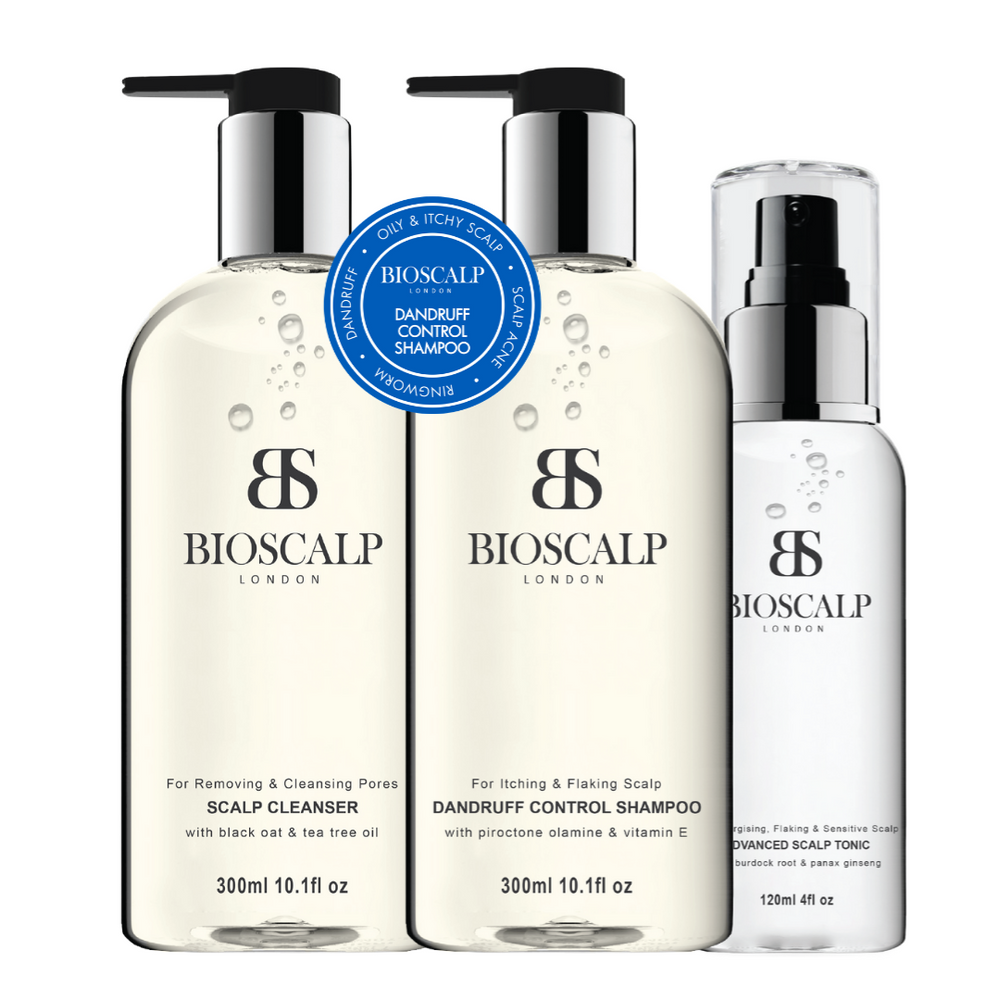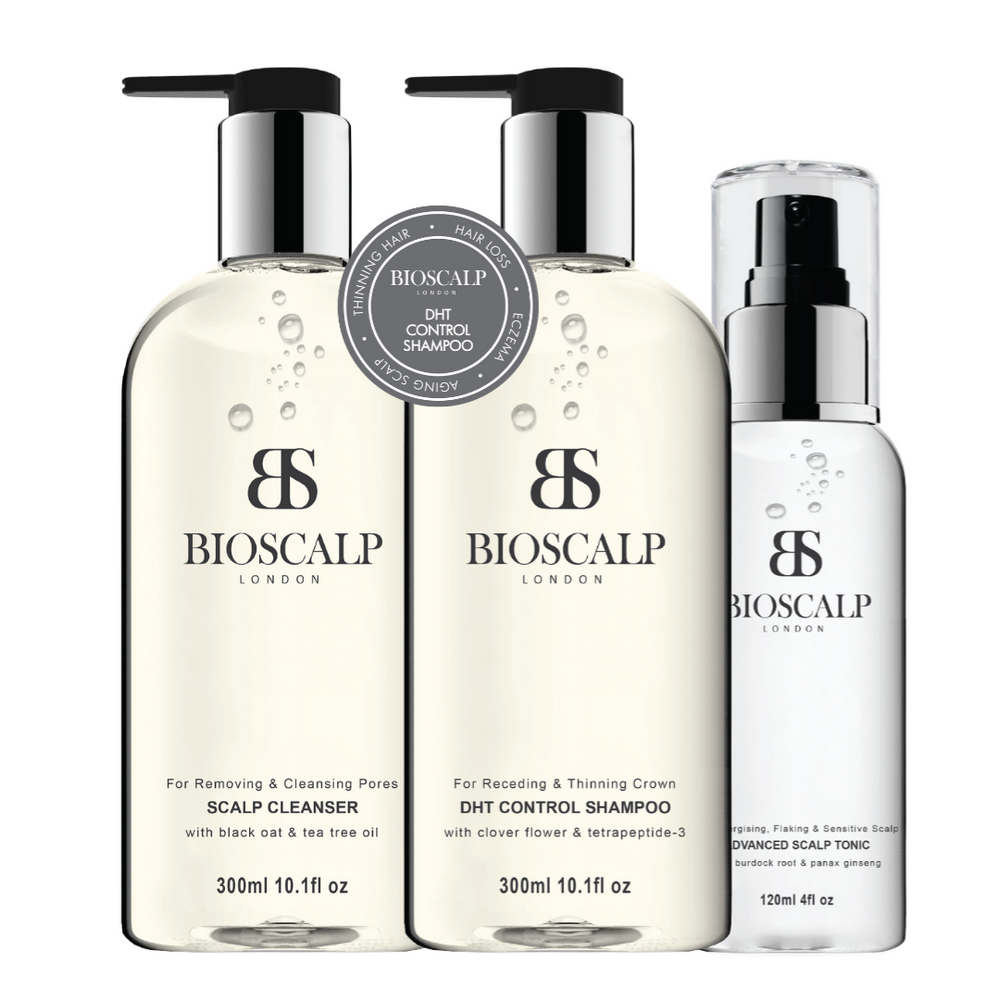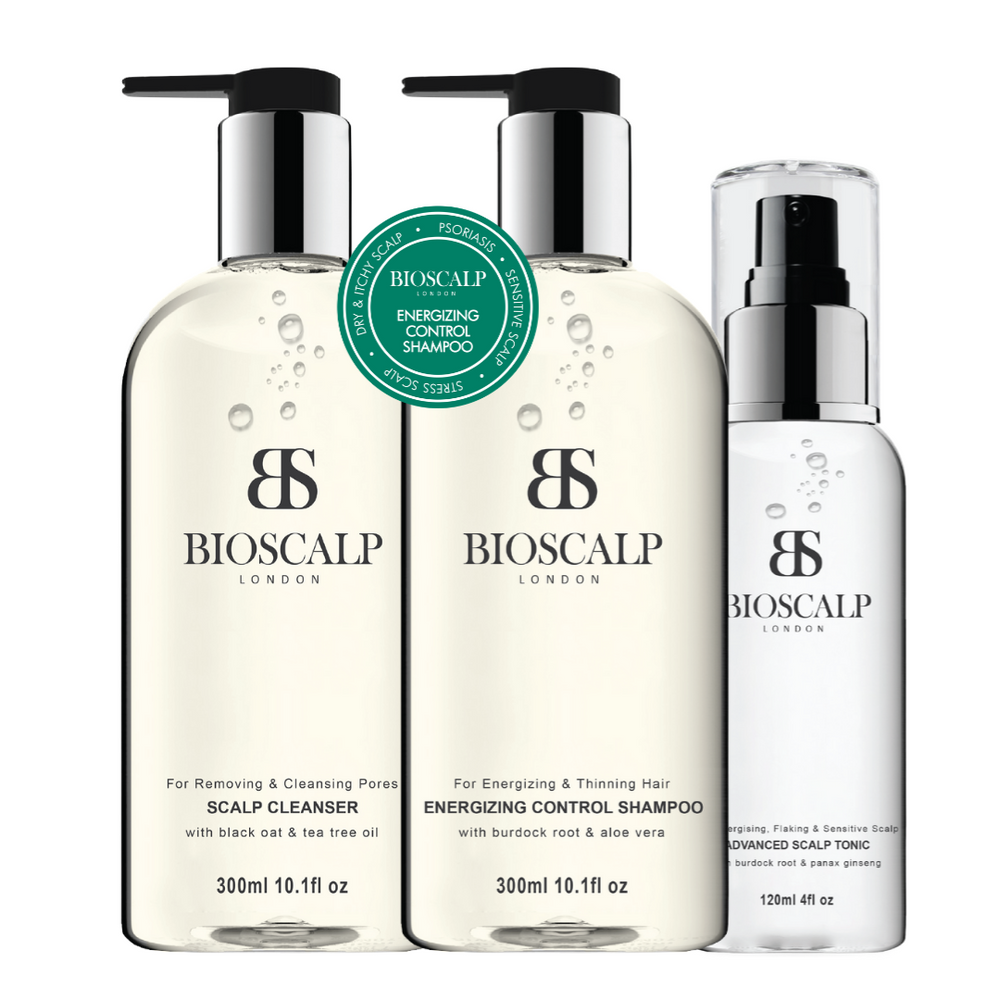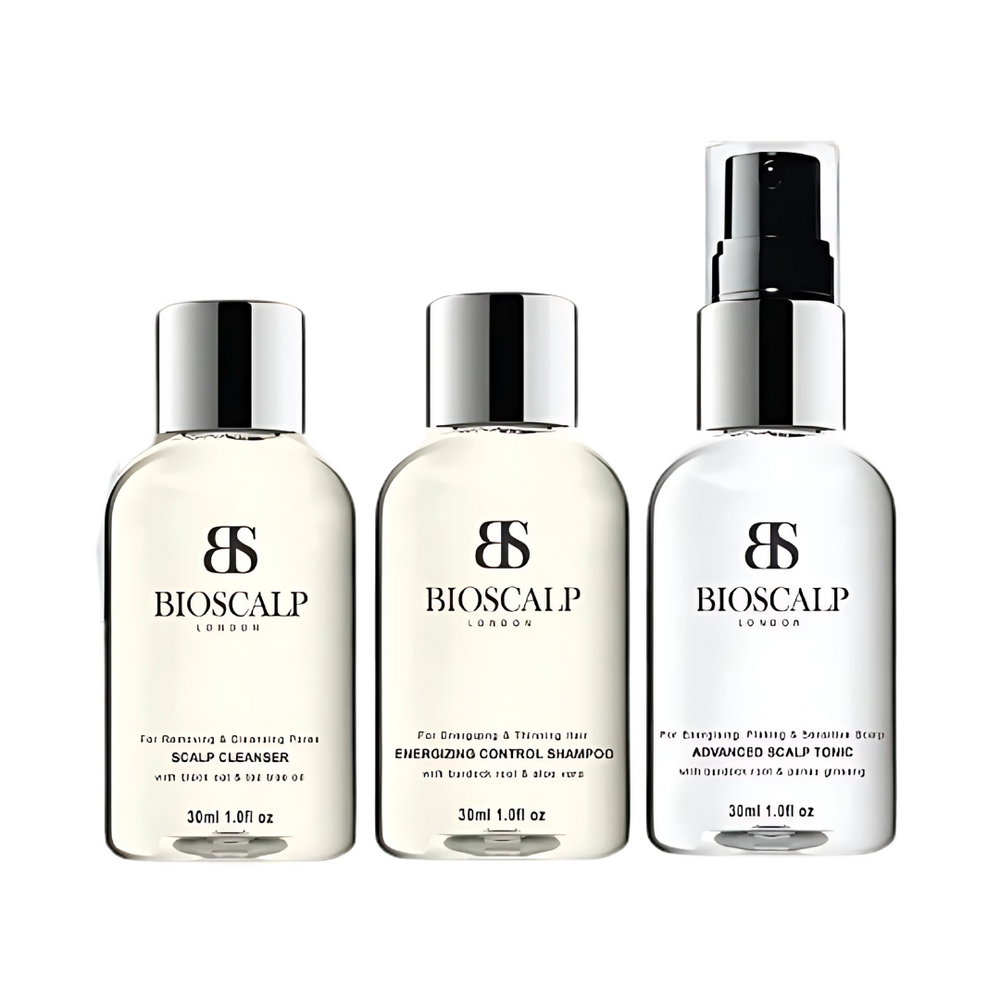Dandruff is a common scalp condition that causes flaking, itching, and irritation, often making individuals seek effective treatments to manage its symptoms. But how do dandruff treatments work, and what makes them effective? This blog explores the mechanisms behind dandruff treatments, their types, efficacy, and precautions to help you make informed decisions for a healthier, flake-free scalp.

Treatment Mechanisms: How Do Dandruff Treatments Work?
Antifungal Action
A significant cause of dandruff is the overgrowth of Malassezia, a naturally occurring yeast on the scalp. In some people, this yeast breaks down oils (sebum), producing byproducts that irritate the scalp and lead to flaking. Dandruff treatments with antifungal properties, such as piroctone olamine, ketoconazole and selenium sulphide, work by inhibiting the growth of Malassezia. By controlling the fungal population, these ingredients reduce scalp irritation and prevent further flaking.
- Piroctone Olamine: Known for its strong antifungal activity, piroctone olamine specifically targets Malassezia species. It is a gentler alternative to ketoconazole and is found in products like the BioScalp Dandruff Control Shampoo, helping to reduce flakes, itchiness, and scalp irritation while maintaining scalp balance.
- Ketoconazole: A potent antifungal agent often found in medicated shampoos like Nizoral, it directly targets fungal activity to address severe dandruff.
- Selenium Sulfide: This ingredient not only reduces yeast growth but also minimizes oiliness on the scalp, creating an environment less favorable for dandruff formation.
Keratolytic Effects
Another key mechanism involves removing the buildup of dead skin cells that cause visible flakes. Keratolytic agents like salicylic acid and coal tar work by loosening and dissolving the bonds between dead skin cells, allowing them to be washed away more easily.
- Salicylic Acid: Commonly found in products like BioScalp Energizing Shampoo, salicylic acid gently exfoliates the scalp, clearing away flakes and buildup without stripping moisture.
- Coal Tar: Known for its ability to slow down the rapid turnover of skin cells, coal tar reduces scaling and flaking. It is particularly effective for stubborn, chronic dandruff.
Anti-inflammatory Properties
Dandruff often leads to redness, itching, and inflammation. Some treatments contain anti-inflammatory ingredients that soothe the scalp and alleviate discomfort. By reducing inflammation, these treatments calm irritated skin and create a healthier environment for the scalp. Ingredients like zinc pyrithione not only fight fungus but also reduce scalp irritation, providing dual-action relief.
Types of Dandruff Treatments
Medicated Shampoos
Medicated dandruff shampoos are the most commonly recommended treatments. They are formulated with active ingredients that address fungal overgrowth, exfoliate the scalp, and reduce inflammation. Popular ingredients include:
- Piroctone Olamine: Specifically targets Malassezia species and is a gentler alternative to ketoconazole.
- Zinc Pyrithione: Fights fungi and bacteria while soothing irritation.
- Selenium Sulphide: Reduces oil production and fungal activity.
- Ketoconazole: A powerful antifungal agent for severe dandruff cases.
These shampoos are widely available over the counter, making them accessible for regular use to control dandruff symptoms.
Tar-Based Products
Coal tar-based shampoos and treatments work by slowing the excessive shedding of skin cells, which is a major contributor to dandruff. They are especially effective for managing chronic or stubborn dandruff conditions, but their strong scent and staining properties may make them less popular for some users.
Prescription Options
In severe cases where over-the-counter treatments prove insufficient, dermatologists may prescribe stronger medications. These may include higher concentrations of ketoconazole, corticosteroid lotions to reduce inflammation, or combinations of antifungal and keratolytic agents. Prescription treatments provide targeted relief and are often used for conditions like seborrheic dermatitis, which can cause persistent dandruff.
Treatment Efficacy: What Results Can You Expect?
Symptom Relief
Dandruff treatments are designed to alleviate the most common symptoms, including:
- Flaking: By reducing the buildup of dead skin cells and controlling fungal activity, treatments significantly reduce visible flakes.
- Itching: Anti-inflammatory and antifungal ingredients work to soothe irritated skin, providing relief from persistent itching.
- Redness: Calming ingredients help reduce inflammation and restore the scalp’s natural balance.
Long-Term Management
While dandruff treatments provide immediate symptom relief, consistent use is essential for long-term control. Medicated shampoos and treatments must be incorporated into a regular hair care routine to maintain a dandruff-free scalp. For many individuals, alternating between treatments prevents the scalp from becoming resistant to a single active ingredient.
Comparative Effectiveness
People often seek comparisons between different treatments to find the best solution for their condition. Studies show that medicated shampoos containing ketoconazole or selenium sulphide may outperform other common ingredients due to their powerful antifungal properties. Additionally, combining keratolytic agents like salicylic acid with antifungal treatments offers a comprehensive approach to managing dandruff.

Side Effects and Precautions
While dandruff treatments are generally safe, it’s important to be aware of potential side effects:
- Scalp Irritation: Ingredients like coal tar or salicylic acid may cause dryness or mild irritation in sensitive individuals.
- Changes in Hair Texture: Some treatments, especially those containing strong active ingredients, may leave hair feeling dry or brittle.
- Allergic Reactions: Though rare, some users may experience redness, itching, or swelling. Discontinue use and consult a dermatologist if adverse reactions occur.
To minimize risks, start with lower concentrations of active ingredients and gradually increase as needed. Always follow the usage instructions provided with dandruff treatments to avoid overuse or scalp dryness.
Conclusion
Dandruff treatments work by addressing the root causes and symptoms of dandruff through antifungal action, exfoliation, and inflammation reduction. Whether you choose medicated shampoos, tar-based products, or prescription options, consistent use is key to maintaining a healthy, flake-free scalp.
While no single treatment works for everyone, combining the right products with a regular hair care routine can provide effective, long-term relief. If symptoms persist or worsen, consulting a dermatologist can help identify underlying scalp conditions and provide targeted solutions.
Ready to take control of dandruff? Explore our selection of expert-approved dandruff shampoos and scalp treatments for a healthier, flake-free scalp. Shop now and restore your confidence today!








